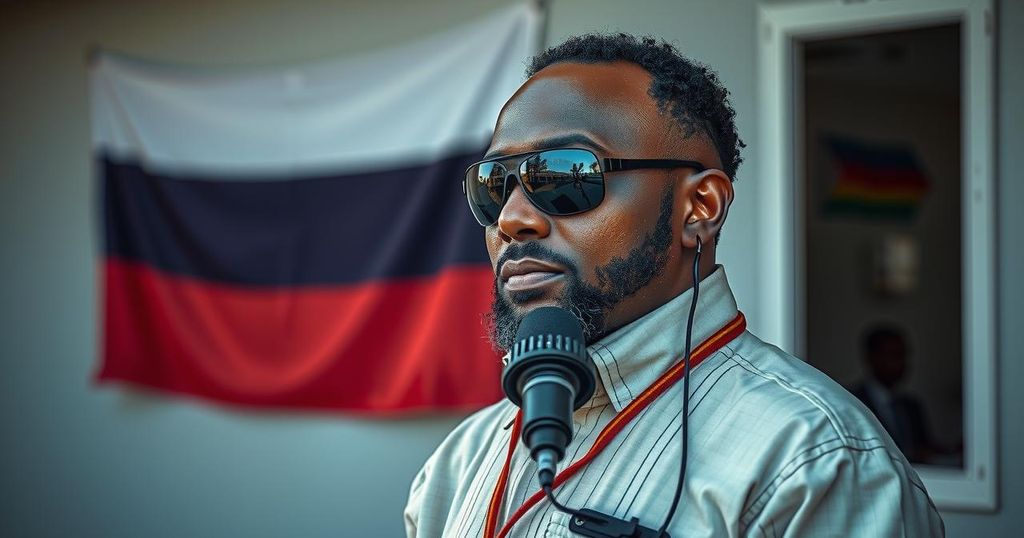The South African government has confirmed the deportation of Janusz Walus, the far-right extremist who assassinated anti-apartheid leader Chris Hani in 1993. After nearly three decades in prison, his release sparked national protests, reflecting ongoing societal issues related to racism and apartheid. On Friday, Walus will be sent back to Poland, a decision driven by a Constitutional Court ruling, prompting reactions from Hani’s widow and the ANC, who desire further investigation into this historic assassination.
The South African government has announced that notorious far-right extremist and convicted murderer Janusz Walus will be deported to Poland. Walus, 71, infamously assassinated anti-apartheid leader Chris Hani in 1993, a critical moment just prior to South Africa’s first multi-racial elections. Despite spending nearly three decades incarcerated, his parole in 2022 ignited significant protests, highlighting the country’s ongoing struggles with racism and the legacy of apartheid. Walus is expected to depart South Africa on Friday, with the Polish government covering the costs. South Africa’s Home Affairs Minister Leon Schreiber described this development as a “painful day,” reflecting on the painful memories associated with apartheid, while the government clarified that the decision to deport Walus stemmed from a ruling by the Constitutional Court. Limpho Hani, widow of Chris Hani, expressed her distress over the situation, noting that she was only informed of Walus’s release a day before the deportation. The African National Congress (ANC) has lamented the enduring pain caused by Hani’s assassination and labeled Walus’s release a painful reminder of this historical tragedy.
In 1981, Walus immigrated from Poland to South Africa, eventually earning citizenship, which was revoked following his murder conviction. Initially sentenced to death, his punishment was commuted to life imprisonment when the death penalty was abolished in South Africa. During his 1997 testimony, Walus claimed his motive was to induce chaos in South Africa, allowing the right-wing factions to gain influence. Many feared his actions would exacerbate racial tensions and threaten the nation’s transition toward democracy. ANC Secretary-General Fikile Mbalula criticized Walus’s deportation, emphasizing the need for a thorough investigation into Hani’s murder to fully unveil the crime’s complexities. Furthermore, Walus has become an emblematic figure among far-right groups in Poland, with merchandise bearing his likeness circulated even in South Africa, underscoring the lasting impact of his actions. Despite the magnitude of his crime, Walus has never acknowledged remorse for the killing of Chris Hani, further fueling the discourse surrounding his legacy and ongoing implications for South Africa’s history.
Janusz Walus is a prominent and controversial figure in South Africa’s historical narrative, primarily due to his assassination of Chris Hani, a revered leader in the anti-apartheid movement. Hani, a key member of the African National Congress (ANC) and the South African Communist Party, was seen as a symbol of the struggle for equality and democratic governance in the country. His murder in 1993 came at a pivotal moment when South Africa was transitioning from apartheid to a democratic society, intensifying fears of racial conflict. Walus’s release from prison after serving almost three decades, followed by his recent deportation, has revived discussions about the socio-political ramifications of his crime and the country’s ongoing battle with its past.
The deportation of Janusz Walus highlights the complexities of South Africa’s history and the lasting pain associated with its struggle against apartheid. Despite nearly thirty years in prison, his release has sparked outrage and calls for accountability. The South African government, conforming to a court ruling, faces criticism from Hani’s family and the ANC, who seek deeper inquiry into the legacy of violence and injustice. Walus’s unrepentant stance furthers the dialogue regarding extremism and the challenges of reconciliation in a nation still healing from its tumultuous past.
Original Source: www.bbc.co.uk






